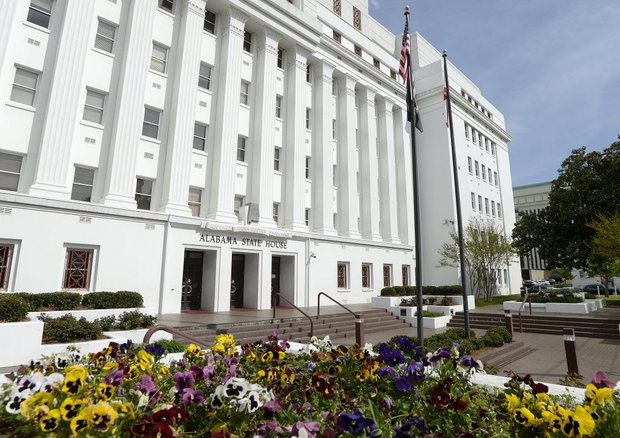‘Brunch bill’ would let Alabama restaurants serve alcohol on Sunday mornings

Alabama restaurants could soon have the right to serve alcohol on Sunday mornings starting at 10 a.m. under a bill filed in the state House of Representatives. Dubbed the “brunch bill,” House Bill 353 would allow Alabama counties and municipalities the ability to give restaurants, bars and hotels in their jurisdiction the opportunity to serve alcohol for on-premise consumption two hours early on Sundays. ABC stores would remain closed on Sundays. Currently, under Alabama general statute 1992, § 4-29.1, it is illegal to purchase alcohol between 2:00 a.m. and Sunday and noontime Sunday. Introduced by Birmingham-Democrat Juandalynn Givan, the bill is currently pending a reading from the House Economic Development and Tourism Committee. 11 additional states have some variation of Sunday alcohol restrictions: Indiana, Minnesota, Mississippi, Montana, North Carolina, Oklahoma, South Carolina, Tennessee, Texas, Utah and West Virginia.
Grandparents visitation bill clears the Alabama House

The Alabama House of Representatives on Tuesday passed HB334 from Rep. Mike Jones (R-Andalusia), which would provide the criteria by which grandparents may petition for visitation with their grandchildren. Jones noted that Alabama is one of only a handful of states that don’t already have such a law on the books. The bill faced difficulties last year after it was ruled unconstitutional and the Alabama Supreme Court’s decision earlier this year not to take up the bill seemed to stop it in its tracks. But significant work has been done since then by the Alabama Law Institute and others to ensure that the bill can withstand scrutiny. The bill went before committee in early March and drew the support of a wide array of Alabama parents and grandparents, though just as many showed up to oppose the measure. In today’s vote, which garnered an affirmative from 97 Representatives, only Rep. Juandalynn Givan (D-Birmingham) rose to voice concern over the legislation. Givan noted that she had opposed the legislation previously and wanted to ensure that the bill would not hamper Alabama parents from making decisions regarding the welfare of their children. Jones noted that changes were made to ensure the bill would be deemed constitutional, adding that the legislation was based off of a similar law passed in Arkansas. “We’re not reinventing the wheel,” Jones said. “We’re trying to learn from other states.” Jones noted that his bill creates a “narrow door” through which grandparents will have to pass to regain access to their grandchildren and said that Alabama’s law would be one of the most conservative in the country. He added that any decisions regarding reinstated visitation rights will start with the presumption that fit parents have made a decision in the best interest of their children – it will be up to grandparents to prove the opposite. With its passage in the House, the bill will go before a Senate committee before making it to the full Senate in the coming weeks.
Despite concerns, bill allowing cameras on school buses passes committee

The House Judiciary Committee approved a bill Wednesday which would authorize local school boards to install cameras on school buses to catch people who violate stop signs on the side of buses. The bill makes it optional for school districts to do so. SB215 from Sen. Jimmy Holley (R-Elba) brought forth the bill because he aims to create a “safe environment for our school children to get on and off school buses.” Holley noted that there are multiple accounts each year of children being injured due to a driver’s failure to yield to a school bus’s stop sign and hundreds of related offenses. Rep. Juandalynn Givan (D-Birmingham) voiced multiple concerns over the legislation, specifically how the cameras would be installed and maintained. Holley said that it would the responsibility of local school boards to pay for the cameras, noting that it might require multiple cameras on each school bus. Concerns were also voiced over the constitutionality of such cameras, with lawmakers noting that cameras on street lights and in unmanned police cars are widely unpopular and often unconstitutional. Holley had no real explanation as to what makes these cameras different, only that they would go a long way in curbing the practice of ignoring school bus signals and provide ways to prosecute those who do. Further concern was raised over the fact that law enforcement is not involved in the installation of the cameras, but Holley affirmed that local law enforcement must be brought into the fold when a municipality decides to install such cameras. The cameras will shoot footage of the offender’s license plate, therefore holding accountable the car owner regardless of who is operating the vehicle. The bill has already passed the Senate and its passage through the House committee clears it for a reading before the full House of Representatives.
Despite Democrats’ opposition, General Fund budget has its day before the House

Taking a strategy from last week’s playbook, Alabama House Democrats began a filibuster as the Special Order Calendar was brought up for discussion. The calendar includes the General Fund budget, which raised the ire of Dems because of its lack of adequate Medicaid funding. The current budget leaves in place an about $100 million shortfall in the Medicaid budget and will obliterate plans announced by Gov. Robert Bentley to institute a Regional Care Organization (RCO) program in the state. Both Bentley and House Speaker Rep. Mike Hubbard (R-Auburn) have signaled that there will likely be a special session called to address the shortfall in Medicaid. According to statements made by Hubbard, Republicans are slow to fully fund the Medicaid program because it puts a strain on all other state agencies. Along with prisons, Medicaid takes up about 62 percent of the state’s budget. “I stand here today because I am concerned about where we are on the Medicaid budget,” said Rep. Juandalynn Givan (D-Birmingham). “Yet again, we will have failed the people who need it the most. We find money here in this state for everything in this state that we need to find it for. I still cannot fathom why we need to have a special session, yet again, to fix a problem here in this state that we should be addressing right now.” Givan noted that more than a million Alabamians receive Medicaid benefits and lawmakers should be looking at ways to raise revenue to fund the program. Rep. William Buskey (D-Mobile) referred to constituent concerns over a “bare-bones budget.” “I don’t think it’s bare bones,” Buskey said. “I think it cuts through the flesh, almost to the marrow.” “I believe healthcare is paramount to everything we do,” said Rep. Darrio Melton (D-Dallas). “Healthcare drives so much of our economic development. Let’s make health care strong.” Democrats stalled for more than two hours, but eventually a vote was taken and the Special Order Calendar was approved.
Alabama legislative agenda preview: May 19-21

This promises to be a busy week at the Statehouse. Several news outlets are already reporting plans by House Speaker Mike Hubbard and Senate President Pro Tem Del Marsh to hold a press conference Monday to introduce “budget reform initiatives.” So far, no details have been made public. Keep checking ALToday.com for news. In budget-related news, House Bill 135, the general fund budget passed by the House ways and means committee on Thursday, is scheduled for a floor vote on Tuesday. However, Gov. Robert Bentley has already vowed to veto that proposal, calling it “unworkable” and “irresponsible.” The Ways and Means Education Committee is expected to vote on the state education budget on Tuesday afternoon. Senate Bill 179 has already passed the Senate. Also on Tuesday, House members are scheduled to debate appropriations for the Children’s First Trust Fund (House Bill 129) and the Coalition Against Domestic Violence (House Bill 134). Here are other items on the legislative agenda this week: •The Senate Judiciary committee is scheduled to vote on Senate Bill 468, also known as the Alabama Dog Tethering and Outdoor Shelter Act. Sen. Jabo Waggoner filed the bill to make it illegal for dog owners to tie their pets to stationary objects and says that any pet kept outside must have adequate food, water, and shelter. The dog chaining bill could be the last of four closely watched protections against animal cruelty this session. •The committee will also debate a proposal to penalize sex offenders who fail to register with the county in which they plan to reside. Sponsored by Rep. Juandalynn Givan, House Bill 316 also requires sex offenders to provide law enforcement with a list of any Internet providers they use. •A Senate health panel will consider Senate Bill 318, legislation to grant immunity to minors under the influence of alcohol or drugs and seeking medical help for another minor. •The House committee on education policy will hear Senator Waggoner present details on House Bill 664, a plan to allow members of the Alabama Public Charter School Commission to be appointed by the governor, lieutenant governor, president pro tempore of the Senate, and the speaker of the House of Representatives rather than the state board of education. •At 9 a.m. Wednesday, a House panel will hear public argument centering on tightening regulations of the title loan industry. House Bill 400, sponsored by Rep. Rod Scott, would require licensing for title loan offices and establish caps on charges, fees, and interest for title loans. •Rep. Arnold Mooney will appear before the House Judiciary Committee to present his measure banning assisted suicide in Alabama. House Bill 496 imposes civil and criminal penalties on medical professionals and care providers who provide help in dying under certain conditions.


